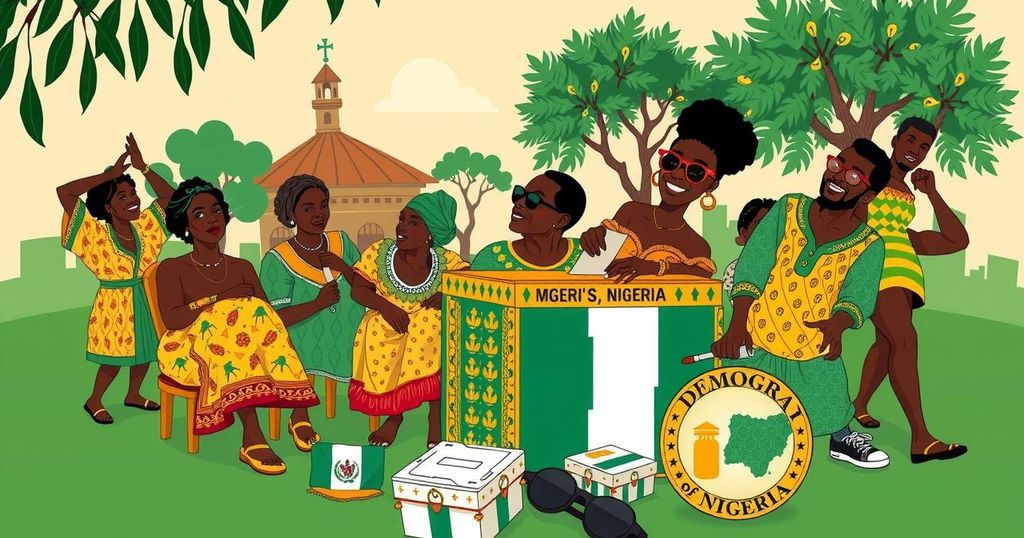As Nigeria gears up for the 2027 elections, the influence of money politics raises concerns about the integrity of its democracy. Achike Udenwa warns that financial capacity allows candidates to secure votes and compromise election fairness. Rising costs of nomination forms and inadequate reforms further exacerbate these issues, highlighting the need for significant electoral reforms to protect democracy.
The upcoming 2027 general elections in Nigeria have ignited intense discussions among politicians, with President Bola Tinubu seeking re-election and opposition figures aiming to unite against him. However, this focus on power struggles threatens to overshadow the essential need for democratic sustainability, as electoral reform is not prioritized by politicians.
Achike Udenwa, former governor of Imo State, recently highlighted the detrimental impact of money politics on democracy. He stated that significant resources enable candidates to secure electoral victories, posing a serious challenge to the integrity of elections. Udenwa expressed concern that voters are often swayed by financial inducements rather than candidate capabilities.
Incidents of voters being bribed before elections demonstrate the corrupt practices facilitating the defeat of democratic principles. Tactics like ‘see and buy’ further undermine the electoral process by compelling voters to show proof of their votes to party agents in exchange for money or goods.
The judiciary also faces challenges with members of the legal profession being implicated in electoral malpractices, particularly during primaries. Mahmood Yakubu, Chairman of the Independent National Electoral Commission, has called for action against bribery in delegate elections, with reports of international bribery during primaries further complicating the issue.
Additionally, aspiring candidates confront skyrocketing costs for nomination forms, which have increased by 300 percent since 2015, discouraging participation from less wealthy individuals. The prescribed spending limits for candidates in the Electoral Act 2022 are far detached from reality, with actual campaign expenditures exceeding legal caps.
While some election officials have faced prosecution for compromising the integrity of elections, these cases are minimal compared to broader electoral fraud. Reports from Commonwealth Observers indicate that recent electoral reforms didn’t adequately tackle persistent issues.
In contrast, established practices in countries like the U.S. limit contributions to presidential candidates, helping to reduce the influence of money in politics. Implementing similar measures in Nigeria may aid in countering money politics, and the establishment of an electoral offences commission by the National Assembly is critical for regulating campaign finances. Continued advocacy by civil society organizations is essential to maintain momentum for electoral reform in Nigeria.
The significant role of money in Nigeria’s democracy poses a substantial threat to credible elections and democratic integrity. The alarming rise in financial inducements, escalating costs for political participation, and insufficient regulatory frameworks highlight the urgent need for electoral reforms. Creating a more transparent and equitable electoral system is crucial to ensuring fair competition and restoring confidence in Nigeria’s democratic processes.
Original Source: punchng.com






